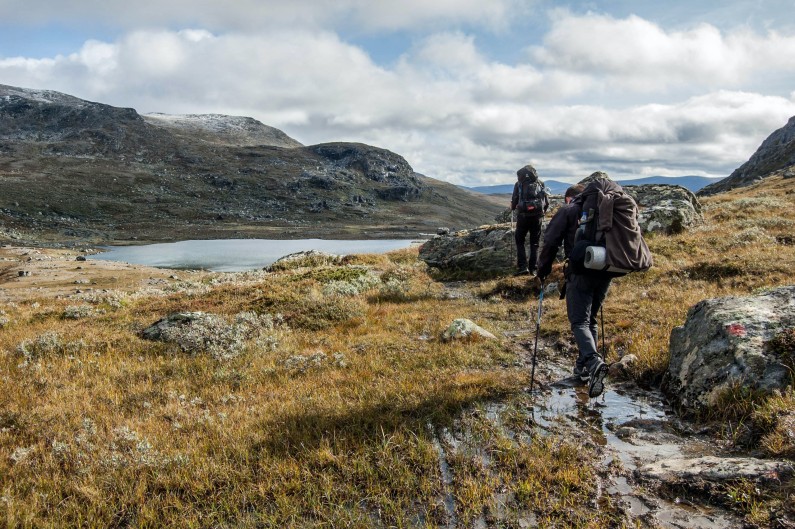
Cool heads will help curb climate change
Published: 4 May 2023
By: Louise Zacest
It’s easy to get stressed and even overwhelmed by the endless doom and gloom scenarios about how fast the planet is heating up.
Or frustrated that all our efforts to recycle, cycle, buy electric vehicles and consume less red meat seem to make little difference.
There’s been a lot of finger-pointing, heated debate and for the average person in the street, a growing sense of helplessness about the earth’s future.
Well, take a breath. Of clean, fossil-free air.
It turns out technology and human intervention, for so long in the hot seat for causing global-warming, are going to be the things that save us from ourselves.
Because according to the BBC’s Future Planet website, the planet’s about to reach a positive tipping point as we strive to turn this ecological nightmare around.
But before the good news, let’s remind ourselves why the consequences of climate change are so devastating to not just the health of the planet, but human health too.
“Ecosystems are endangered, climate change is having devastating effects, and increased land, air, ocean and water pollution are impacting us all, in particular vulnerable populations,” says Amina Mohammed, UN Deputy Secretary-General.
As she rightly infers, the health of our planet is directly linked to human health and our ability to live well and prosper.
Here in New Zealand, the outcomes of climate change make harrowing reading.
To quote from Te Mana Ora, and with the devastation of the recent cyclones weighing heavily on our hearts, just some of the health impacts facing New Zealanders could include:
- More storms and flooding, adversely affecting the health and wellbeing of communities;
- Increased risk of food and water-borne diseases due to ecosystem changes;
- An increase in heat-related deaths due to changes in weather patterns;
- Changes in food production patterns and food security for both locally produced and imported feed, due to greater fluctuation in crop yields and a decrease in productive land;
- Changes in water quality especially in rural areas leading to water allocation issues;
- Flow-on social and economic impacts, contributing to increased mental health effects;
- Widening of health and social inequalities as the disadvantaged will be disproportionately impacted;
- Interrupted food production, droughts in the east, rain on the west;
- Added pressure on our rural economy, the welfare of workers, with exploding mental health needs related to communities under stress;
- Respiratory health is also linked to climate change with much of our housing not equipped to combat damper weather and increased mold causing asthma;
- Unchecked, climate change is predicted to increase the number of days where the temperature exceeds 25 degrees Celsius from between 40% - 100% by 2040.
Meanwhile, our Government is focusing heavily on what has been coined as this generation’s ‘Nuclear Free’ moment.
“Extreme heat can cause problems for everyone, but it can be especially concerning for babies and infants, pregnant women, older people, those with pre-existing medical conditions, and those with disabilities, while research shows that hospital admissions and deaths increase during periods of hot weather. Climate change also has an impact on people’s productivity at work, the primary industries and our economy,” says Minister Julie-Anne Genter.
These are dire predictions, but amongst all the heat, a ray of hope.
Because it seems humanity’s pragmatic problem-solvers and their high-tech solutions are finally starting to pay off.
As I mentioned before, this year the world is predicted to pass a critical turning point in renewable energy.
According to respected London-based, think tank Ember; Greenhouse gas emissions from the power sector, the largest source of the world's emissions, are expected to fall for the first time.
And that’s after considering the fact that the world's electricity demand is still growing.
So how can greenhouse emissions be reducing?
Because expansion and uptake in renewable energies like solar and wind is overtaking the demand for electricity.
For the first time ever.
The report, co-written by senior electricity analyst Małgorzata Wiatros-Motyka, argues that we’re fast approaching a positive "tipping point" in our battle against climate change.
"This marks the point where power sector emissions stop rising," states the report. "Clean power can actually go to replacing fossil fuels, instead of just meeting rising demand."
She’s referring to technology transitions, the move from old technologies based on fossil fuels, to new ones, the zero-emission technologies.
And the good news gets better.
“I would say that the first tipping point was when new solar and wind power became cheaper than new coal and gas power. That's the case in the vast majority of countries in the world. So, in other words, it's cheaper to build a solar or a wind plant than it is to keep shoveling coal into a coal power station or piping gas into a gas power station.”
We obviously have big challenges ahead and complacency around this issue is not on anyone’s agenda.
Because the fact is that the health of our planet, along with humanity’s welfare is unquestioningly at stake.
But it’s heartening to at last hear a positive, more optimistic outlook and understand that what’s really needed to avert this crisis is cool and solution-driven heads.
As usual I’d love to hear your thoughts or observations on this important issue, please share and comment on the post below or drop me an email at ceo@unimed.co.nz.

